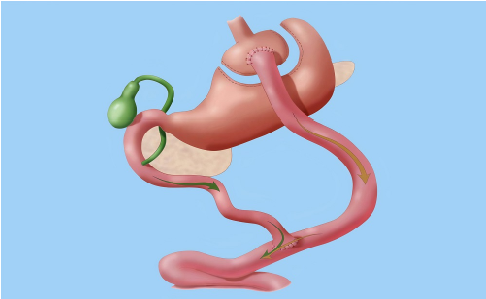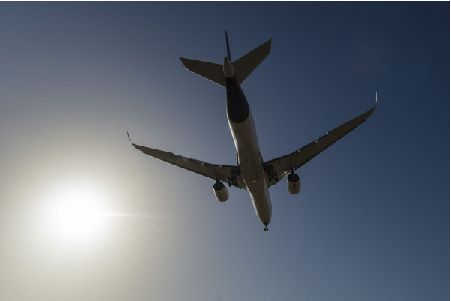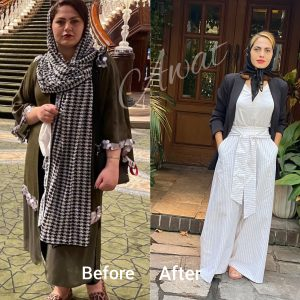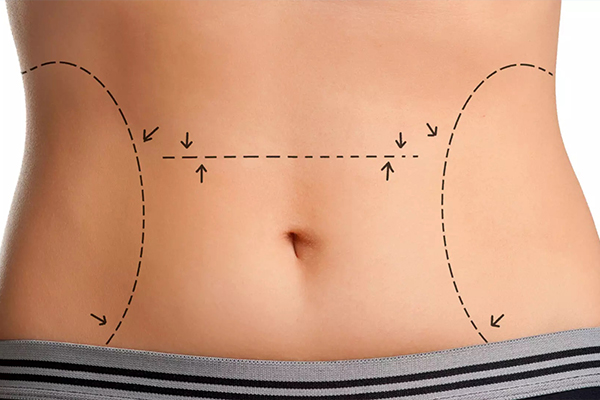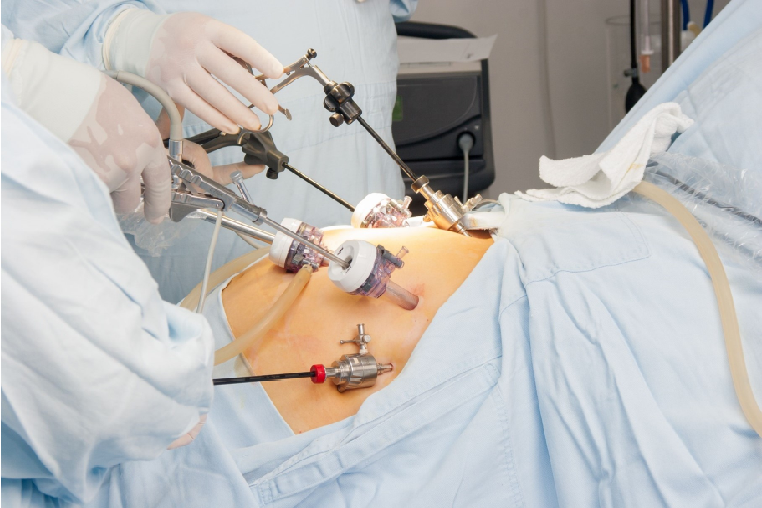
Gastric bypass surgery in Iran
As one of the best countries for gastric bypass surgery in the world Iran has a lot to offer for those who want to have gastric bypass surgery.
What is Gastric Bypass?
Excessive obesity! Many people today are overweight, which makes them unhappy with their appearance and physical condition. For this reason, most of these people do not have the necessary self-confidence to be in society and have proper social relations with others, or on the other hand, they suffer from diseases such as heart problems, diabetes, high blood pressure, stroke, sleep apnea, and arthritis, which may is very dangerous. This is where science comes to the rescue and restores health and fitness to these people with weight loss surgery. One of these effective surgeries is gastric bypass surgery. Therefore, stay with us until the end of this article to explain zero to one hundred gastric bypass procedures.
One of the most effective methods used to lose weight is Gastric bypass in Iran. In this method, by reducing the size of the stomach and changing the body’s digestive system, the surgeon reduces food consumption and prevents the absorption of nutrients and high calories by the body. In this way, after eating a small amount of food, a person will feel full and will experience significant weight loss in a short period. Gastric bypass surgery with two methods:
- Restriction: the patient consumes less food.
- Malabsorption: The absorption of food calories in the body decreases.
It makes the body thin.
Gastric bypass in Iran is a bariatric surgery procedure that helps you lose weight by changing the way your stomach (stomach shrinking) and small intestine (malabsorption) control the food you eat. After the operation, your stomach will be smaller and you will eat less food and feel full. Because the food you eat no longer goes to some parts of the stomach and small intestine that absorb food. Because of this, your body does not get all the calories from the food you eat.
Gastric bypass in Iran, similar to gastric sleeve, is a surgical procedure that is performed in the treatment of obesity. Gastric bypass surgery is used for those who cannot lose weight in the usual way, and obesity for them brings dangerous diseases apart from obesity problems. Bariatric surgeries are never used as the first step to losing weight and can even cause irreparable harm to a person if done unnecessarily. The doctor recommends gastric bypass surgery when the patient has not succeeded in losing weight despite exercise, diet, and lifestyle changes, and now obesity is considered a threat to his life.
Why choose Awat Surgical clinic for gastric bypass surgery?
We suggest you choose Awat clinic for Gastric bypass in Iran. Because in this clinic, our surgeons and consultants will be with you in all stages before surgery, during surgery, and after surgery. At Awat Clinic, all surgical procedures are carefully planned to achieve the best results for the patient. When the stomach shrinks, the patient feels full and full, so he has no desire to eat. On the other hand, less food is absorbed in the intestine and practically fewer calories reach the body. In this method, the patient loses about 80-100% of his excess weight. This slimming surgery method is recommended for patients whose body mass index (BMI) is above 40 and who are unable to lose weight with diet and exercise.
Traditional or classic Gastric bypass in Iran is performed to make the patient eat less food and reduce the absorption of food calories in the body. For the patient to eat less food, the size of the stomach must be changed, and for less food to be absorbed, the intestinal activity must be changed in a way that absorbs less. To implement both of the above goals, in bypass surgery, the stomach is divided into two upper and lower pouches, one of which is 5-10% of the total size and is responsible for storing food. Then a part of the small intestine is also removed from the path of food absorption. In this method, no part of the stomach is separated, and the larger part of the stomach continues to produce and secrete the usual enzymes, but food does not enter this part.
How is a Gastric bypass surgery performed?
The Gastric bypass in Iran procedure is performed in such a way that the surgeon starts the surgery using anesthetics and the laparoscopic method. First, several small incisions (5 half-millimeter incisions) are made on the abdomen so that the laparoscopic instrument can be inserted through them. In the first stage, the surgeon first removes the upper part of the stomach, the size of an egg, to create a small bag. This limits food intake. A Y-shaped section of the small intestine is then attached to the new stomach pouch to create a bypass for food. As a result of this change, the food that enters the body bypasses part of the digestive system so that fewer calories and nutrients are absorbed by the body.
Food first enters the small stomach and is digested through the intestines. In this way, the food enters another area of your digestive system and bypasses the stomach. Therefore, your body does not absorb many calories. Also, you will feel full much faster after eating. In the classic gastric bypass operation, a person uses two techniques: 1. Malabsorption and 2. Limiting technique, that is, creating a usable and small stomach leads to a person’s weight loss. Gastric bypass surgery usually takes about 1.5 to 2 hours in the operating room because it is a heavier operation than other surgeries. However, the preparation time before the surgery and the recovery time after it should also be taken into account.
This surgery can be performed in two ways: open surgery or laparoscopic surgery (through a laparoscope and making several small incisions). In this surgery, they remove a part of the stomach that is located under the cardio area (the place where the esophagus joins the stomach) and connect a part of the small intestine to it. The sizes considered for this connection depend on the person’s BMI (body mass index). Gastric bypass surgery causes weight loss by restricting the size of the stomach and by changing the amount of food absorption (malabsorption) and reducing the amount of calorie absorption.
read more: Gastric sleeve surgery in Iran
Gastric bypass risks and complications
As with any other surgery, Gastric bypass in Iran may be associated with possible complications. Of course, the impact of the experience and expertise of the doctor and the modern equipment of the hospital where this surgery is performed; will have a great impact on reducing and minimizing these complications. Although most of these cases are very rare, some of the possible complications of gastric bypass surgery include:
- Stomach bleeding
- Lung or breathing problems
- blood clotting
- hair loss
- Adverse reactions to anesthesia
- Its recovery period is at least two years and even more, and you need regular check-ups and medical care.
- Changing lifestyle and permanent diet is one of the severe side effects of this operation, because after the operation, less food will be absorbed by the body and the immune system will have less resistance than before, and this may cause malnutrition in the patient.
- One of the complications of Gastric bypass in Iran that rarely occurs is intestinal obstruction, which sometimes causes abdominal pain.
- You may need vitamin supplements for a long time.
- Shortness of breath, gastric reflux, and risks of anesthesia are also among the other disadvantages of gastric bypass.
- Constipation is usually less common after Gastric bypass in Iran. This problem may be caused by consuming high-protein liquid meals, and low-fiber foods, not drinking enough water, and not exercising. Of course, it can be a side effect of drugs and nutritional supplements (iron) and calcium. Usually, with the passage of time and changes in diet and movement, this problem will be solved.
Gastric sleeve vs. gastric bypass
These two actions make a person not feel hungry and lose more weight in a shorter period. Although these two actions both cause weight loss, they have differences. The difference between sleeve operation and Gastric bypass in Iran is in the duration of surgery. In sleeve surgery, surgery and anesthesia are less than one hour, while in gastric bypass, surgery and anesthesia will be more than two hours.
Another difference between the Gastric Sleeve and Gastric bypass in Iran is that you will feel less hungry after gastric sleeve surgery. In fact, in this method, by cutting the part of the stomach that is responsible for the secretion of the hormone ghrelin, the hormone that sends the hunger signal to the brain, the person will be hungry later and stay full for a longer period. On the other hand, the speed of losing weight in sleeve operation is lower than in bypass surgery, and for this reason, the person does not suffer from skin cracks or sagging. Another difference between the sleeve and gastric bypass is in symptoms such as nausea, vomiting, diarrhea, heartache, dizziness, and heart palpitations, which are more common after gastric bypass surgery.
In people who have performed these surgeries, it has been observed that the difference between the sleeve and Gastric bypass in Iran is the duration of hospitalization, rest, and recovery at home, which is shorter in sleeve surgery. Since during gastric sleeve surgery, the digestive tract does not change, the process of digestion and absorption of food is the same as before. But in gastric bypass surgery, because a part of the intestine is changed, the way of digesting food also changes, as a result, it will be more difficult to digest and absorb food.
-
Advantages of gastric bypass
Although Gastric bypass in Iran may seem difficult, it is known as one of the most important methods of treating morbid obesity. Below we have stated the most important advantages of gastric bypass.
- Rapid weight loss and improvement of health and physical condition for people whose BMI is very high.
- It limits the amount of food and prevents the secretion of appetite hormones, which is the main cause of obesity.
- The return of obesity is very, very low.
- The body’s metabolism level increases due to weight loss.
- Compared to other slimming procedures, it is more effective and is considered the main method of treating type 2 diabetes.
- By losing weight, the consumption of drugs caused by the complications of obesity will be reduced, and by doing regular exercises and diet, you can quickly reach your ideal weight.
- Joint problems and breathing disorders such as sleep apnea will disappear and your self-confidence will increase due to reaching a fit body.
- Improve cardiovascular health
- Long-term recovery from type 2 diabetes
- Depression relief
- Elimination of obstructive sleep apnea
- Relieve joint pain
Disadvantages of gastric bypass
While this surgery has many advantages, there are also disadvantages to bariatric surgery. In general, Gastric bypass in Iran is a low-risk surgery, but it is not safe. Therefore, 3 to 5% of people may face complications. Including :
- Bleeding and the need for re-infusion of blood
- Infection or abscess at the operation site and the need for retreatment
- There is a possibility of embolism.
- There is a possibility of intestinal obstruction after the operation
- Postoperative leakage
Preparation for Gastric bypass surgery
Before performing surgery, you should consult with your specialist doctor and ask him about the necessary points that you should follow, but in general, you should follow some important points, including:
- Give your doctor a complete history of your health
- Examination by a doctor
- The doctor’s decision to perform a bypass is according to the patient’s physical conditions, various tests and imaging are done to make sure that the patient can tolerate this surgery physically.
- The doctor fully explains the list of recommendations before and after the operation to the patient
- It is forbidden to take all kinds of hormonal drugs one month before a Gastric bypass in Iran.
- 20 days before the surgery, take one multivitamin, vitamin B complex, and iron a day.
- The use of herbal medicines and anticoagulants such as aspirin, Advil, Motrin, and Ibuprofen is prohibited two weeks before gastric bypass surgery.
- You should stop consuming caffeinated substances such as tea and soft drinks two weeks before the surgery. Because it takes between 10 and 14 days for caffeine to be completely removed from the body.
- The day before surgery, use only liquids and diluted liquid foods. These foods include diluted broth – diluted natural juices, etc.
- Those with diabetes must make sure that the diluted fluids they drink contain enough sugar to use the insulin in the blood during the procedure.
- You can consume these liquids until midnight before the operation.
- Some medicines prevent blood clotting, which you should stop temporarily for a few days or weeks before surgery, such as aspirin/warfarin/vitamin E and…
- Smoking should be stopped a few weeks before the surgery
Gastric bypass surgery aftercare in Iran
Some think that everything will be over with surgery and they will immediately reach their ideal weight and do not need any special care. But the fact is that surgery is the first step to health. Since obesity is a chronic disease and besides, it may be recurrent. After surgery, regular and numerous follow-ups should be done both in terms of body nutrition and exercise and appropriate diet recommendations.
Protein intake after surgery is very important and necessary. Eat low-fat proteins such as fish, skinless chicken, and egg whites. It is necessary to take all kinds of vitamins and minerals because the body is not able to absorb them after gastric bypass surgery. including multivitamins – vitamin B12 – calcium – vitamin D, etc. All these items will be prescribed by a specialist doctor. Avoid heavy activities and take care of your stitches until full recovery.
Going through the recovery period of this surgery, along with the strict diet that you are always required to follow, is perhaps one of the most important side effects of bypass surgery. Those who want to maintain their physical fitness and health should first of all take care of their food after the operation. The food dos and don’ts will be announced to you by the surgeon.
Before & After Photos of Gastric bypass surgery
Below, we have prepared pictures for you that show Before & After Photos of Gastric bypass in Iran. These Photos can be good examples.
Can you get pregnant after a Gastric bypass in Iran?
Women who have a high body mass index and are so-called obese are more prone to gestational diabetes, high blood pressure, or special problems for babies. Therefore, weight loss can lead to a safer pregnancy by reducing these risks. However, you should note that after gastric bypass surgery, you should avoid pregnancy for 12 to 18 months to stabilize your weight.
Is bypass surgery effective in treating diabetes?
Gastric bypass in Iran has a great effect on the treatment of type 2 diabetes. Diabetes will be treated by controlling blood sugar levels. In general, being overweight and obese are the main factors in diabetes.
Is gastric bypass surgery reversible?
Gastric bypass surgery in Iran is a reversible procedure; However, the reversal of this surgery requires a major operation and a greater risk than the original surgery, and it is done according to the bariatric surgeon’s opinion if he makes the necessary diagnosis.
What should we eat after gastric bypass surgery?
After gastric bypass surgery, you must change your diet and follow it carefully. You must make sure that you get the necessary protein, vitamins, and minerals in this diet.


